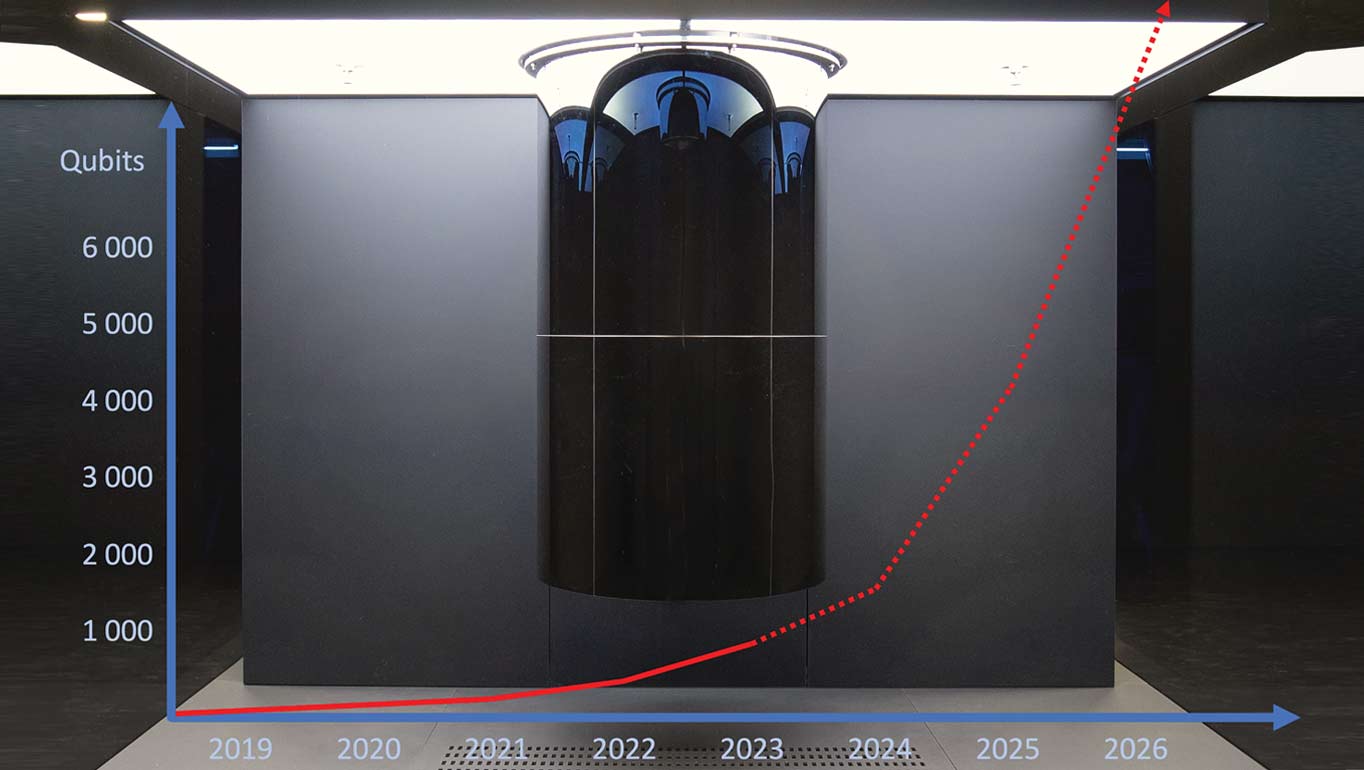Quantum computing offers a new paradigm for computation, which has the potential to impact UN organizations, in particular in terms of accelerating the UN Sustainable Development Goals (SDGs) in various areas. Possible areas of applications include good health, clean energy and decarbonization. At the same time, quantum computing will have the potential to efficiently run algorithms capable of ‘breaking’ current encryption schemes that are the basis for IT security. The UN has a key role to play in ensuring that we neither run full steam into a cyber pandemic nor enlarge the digital divide.
How can the UN ensure the use of quantum computing for global challenges?
As a game-changing technology, quantum computing has the potential to globally impact people, society and the planet. It could help, for instance, to design new carbon capture materials, develop innovative technologies to remove antibiotics from wastewater, forecast weather more accurately or improve medical treatments. The UN is a key stakeholder in participating in the development of quantum computing use cases for the good of humanity, and in particular for the SDGs.
The advancement of quantum computing has intrinsic geopolitical ramifications. Science diplomacy sits at its core, to ensure responsible development and equitable access to this technology and its benefits. The UN can help in supporting education initiatives on the technology, as well as advocating for international standards of quantum for the SDGs.
Why is quantum computing critical for information security?
Quantum computing could evaluate all possible solutions to a problem, such as finding a key for the decryption of a message in a single step; being more than a billion times faster than conventional computers that need to try all possible solutions sequentially. To date, cryptography ensures confidentiality of our communications and secures about 50 billion computing devices worldwide. It authenticates websites and is the basis for qualified electronic signatures, like the new Swiss- or EU-ID. No banking, let alone blockchain transaction, would work without reliable cryptography.
Once sufficiently large and reliable quantum computers are available, most of today’s cryptography could be broken. Commercial quantum computers are being developed, particularly in the US, EU, China and Australia. Real-world applications where quantum computers could outperform classical computers (quantum primacy) are expected by the end of this decade, something that attracts the attention of the intelligence community worldwide.
What role do standards and regulations play?
As the technology gains maturity, new international standards are being developed. UN leaders can pioneer new principles that help address the risks and harness the potential of this new technology. Their engagement with science to utilize the impact quantum computing has on the achievement of the SDGs should inform quantum standardization at the international level.
Various international standards projects are currently under development, starting with defining common terminology and vocabulary for quantum computing. One of the most advanced standard efforts is related to quantum safe cryptography.
Many standards organizations and government agencies like NIST, the ITU-T, German BSI, ISO/IEC, the French ANSSI and CENELEC, as well as the NSA, are currently working on standards for quantum-safe cryptography. Many discussions take place in Geneva, such as the second ITU-T X.509 day in May 2023. The rollout of standards into practice is a lengthy process, which might not be fast enough to prevent increasing vulnerability in the second half of this decade.
Besides the development of standards, national and international regulations need to be adapted, too. Especially for cybersecurity, the US Quantum Computing Cybersecurity Preparedness Act asks US executive agencies to consider the introduction of quantum proof cryptography. At the European level, however, the planned Cyber Resilience Act does not yet directly address the threat from quantum computing.
Which are the opportunities that science and tech diplomacy could bring?
Building a potential quantum transition is a governance call for many stakeholders. The Open Quantum Institute (OQI) is an initiative developed by the Geneva Science and Diplomacy Anticipator Foundation (GESDA) to foster the SDG applications of quantum computing and provide global and equitable access to the technology. Technology providers, academia, businesses, standards organizations, and governments and foundations need to be part of a multi-stakeholder approach to guide society towards a quantum future that will be secure and benefit humanity.



